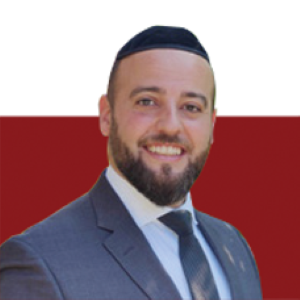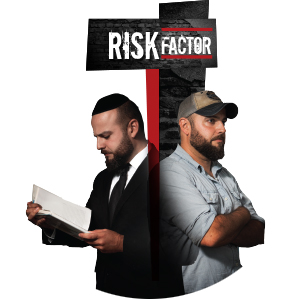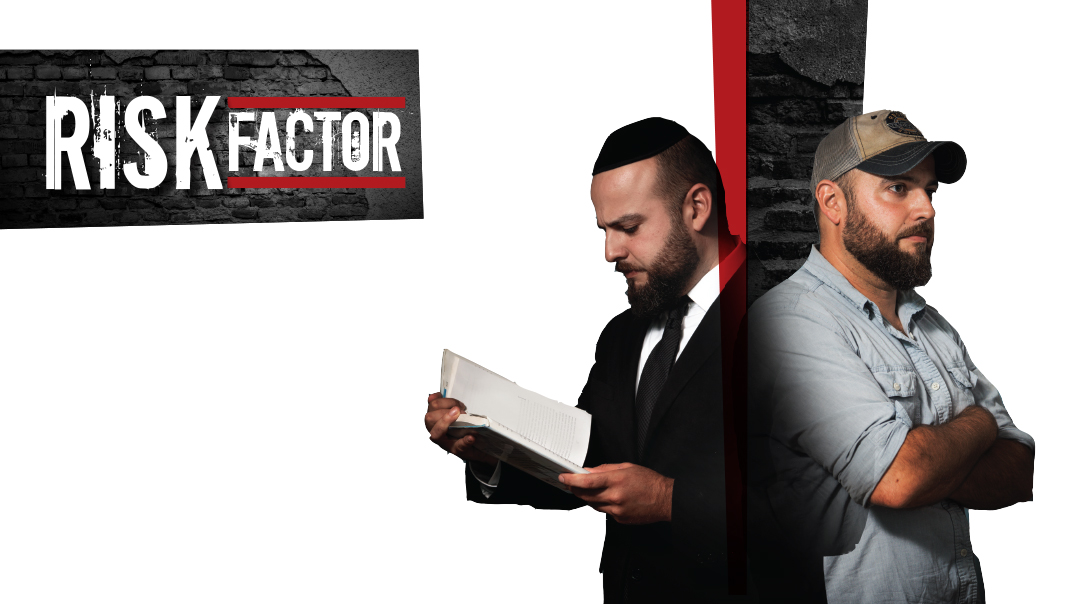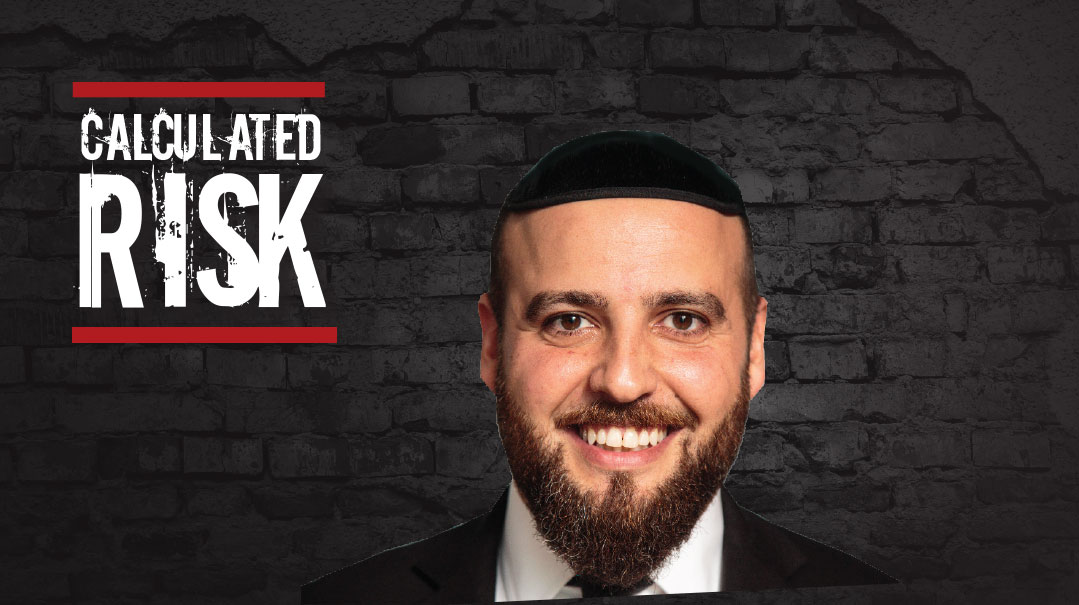You Were Right

Mrs. Weiss and I had exchanged a few e-mails about her oldest son, Benny, who was having a hard time in his yeshivah. Benny was in tenth grade and seemed to be constantly locking horns with his rebbi. The school thought he had a general problem with authority. I gave Mrs. Weiss a few ideas, but they didn’t seem to be effective, so we arranged a phone consult.
Mrs. Weiss was genuinely mystified by Benny’s behavior. “He was never like this until this year,” she said. “I keep getting the same complaint — the rebbi is trying to teach, and Benny is being disruptive and chutzpahdig. I had a meeting at the school yesterday, and they want me to find a high school for boys ‘like him.’ ”
“Did they suggest any?”
“Yes, they gave me a few names.” She listed them. “Rabbi Bensoussan, I promise you, I have no problem sending Benny to any of these yeshivos if that’s what’s best for him. But I just don’t think it is.”
“Did you tell that to the school?”
“Yes, but they aren’t listening. They think I’m just a crazy almanah who can’t handle her teenage son.” I winced, that really hurt. “But they’re wrong about him. I know they are.”
I asked Mrs. Weiss for the rebbi’s phone number. I knew the yeshivah he was in. They weren’t going to listen to me.
I tried anyway.
“Hi,” I said when Benny’s rebbi picked up. “My name is Yossi Bensoussan. I’m working with Benny Weiss. Do you have a few minutes to talk?”
“Sure,” said Rabbi Kohn. “Are you helping him get into another yeshivah?”
“Well, I’m actually hoping that won’t be necessary. If we can figure out what’s making Benny act out, we might be able to help him change his behavior.”
Rabbi Kohn laughed. I didn’t get the joke.
“I’ve been in chinuch a long time,” he said. “This boy is not going to change.”
“Well, I have some ideas…”
“Mr. Bensoussan, I don’t think we’re understanding each other. I like the enthusiasm. But I’ve seen this in boys before. They always go bad.”
“Are you saying there’s no hope for him?” I held my breath.
“Not for this boy, no.”
I hung up and called the menahel.
“We’re afraid of the influence he might have on the other boys,” the menahel explained. “He keeps asking dangerous questions.”
“I didn’t realize there was such a thing,” I said.
“I’ve been in chinuch long enough to know where this is going. This boy is going off, and I don’t want him bringing others down with him.”
“Has anyone ever tried answering his questions?” I pressed.
“We don’t discuss kefirah in our yeshivah!”
In my line of work, you see a lot and you hear a lot, so I know firsthand that Klal Yisrael is blessed, for the most part, with committed rebbeim who love and care for their talmidim like their own children. I resolved to help Benny find a rebbi like that.
There was only one month left to the school year. Mrs. Weiss and I decided that I would meet with Benny to discuss the possibility of him switching to another yeshivah for the next school year. The school would take him on my recommendation, and I’d continue seeing him to help him with the transition.
I met Benny at his home.
“So, what’s going on in your yeshivah now?” I asked.
“They hate me. They think I’m a bad influence.”
“Are you?”
He rolled his eyes and looked away.
“Yeah, I didn’t think so,” I said.
Benny whipped around to look at me. I smiled at him.
We talked a bit more. Benny really didn’t want to leave his yeshivah, but he agreed that if it came to that, he would think about the yeshivah I was recommending.
“I’m not sure what this other yeshivah is all about,” Benny’s menahel said when he informed me he was officially expelling Benny. “To be honest, I never heard of it. But I’m telling you, he’s going to go down and bring everyone down along with him.”
“I think you’re wrong,” I said.
I’m not here to make friends, and I’m definitely not here to make enemies. But the moment he kicked Benny out of his yeshivah, Benny became my talmid. No one talks about my talmid like that.
When the new school year began, Benny had a fresh start. From the moment he arrived he was successful; he did well in class, made friends easily, and the rebbeim loved him. It was true that he asked a lot of questions, but he asked them respectfully, and he listened sincerely to the answers. None of this surprised me, but one thing I hadn’t expected was the incredible influence he had on the other boys. His presence raised the level of the entire group, and he inspired a lot of learning and a deeper maturity among the guys.
At first, I met with Benny each week just to help him and the school with the transition. Benny had a lot to talk about, and we defined some goals and celebrated milestones together. Benny was doing great, and we scaled back our meetings to once a month, then even that became unnecessary.
“Congratulations, Benny,” I said to him. It was around January, and through the window behind him I could see snow falling. “I got nothing for you. You’re doing awesome.”
Benny blinked and looked up at the ceiling. I could see tears leaking out of the corners of his eyes.
“What’s going on, Ben?”
“Is this real?” he said.
I waited.
“I just don’t do well in school,” he said. “That’s what they always told me. I’d never do well because of my attitude, and because I can’t deal with authority. But I’m here, and I’m happy, and I don’t understand it.”
I’d known this day would come, and I wasn’t going to lie.
“Benny, that was their story, and you believed them. But tell me now — what really happened last year?”
He looked back at me, head tilted a bit to the side. “They hated me.”
“Nope,” I said. “I called a few of the rebbeim who taught you in previous years. They all said you were great, maybe just a little mischievous.” I held his gaze. “So tell me, what happened last year? What did Rabbi Kohn do?”
Benny’s eyes sharpened. He stared at me, hard.
Then he said, “He would ask questions and make fun of the guys who got the answers wrong. It killed me to see it. So, I asked him some questions he probably couldn’t answer.”
When Benny left, I called Rabbi Kohn. “I thought you would want an update on Benny Weiss,” I told him. “He’s doing really well, baruch Hashem. In learning he’s the top of the class, and he’s become a leader among the boys. He even started an amud yomi chaburah for the guys who wanted to cover more ground than they were doing in class.”
There was silence on the other end.
“So I just wanted to thank you for your advice and tell you that you were right about Benny,” I said.
“I… what?”
“You were right,” I repeated. “You told me that Benny would influence all the boys. Baruch Hashem, you were right.”
Then I went to find Benny. “You asked me a question before,” I reminded him, “and I’m going to answer you. The answer is yes. Yes, Benny, your success here is real.”
Identifying details have been changed to protect the privacy of patients, their families, and all other parties.
Rabbi Yossi Bensoussan serves as mashgiach ruchani at Yeshiva High School of Cleveland. He is a Certified Alcohol and Substance Abuse Counselor (CASAC) who currently maintains a private practice, and does motivational speaking and community education on addiction all over the US and Israel.
(Originally featured in Mishpacha, Issue 795)

Oops! We could not locate your form.



